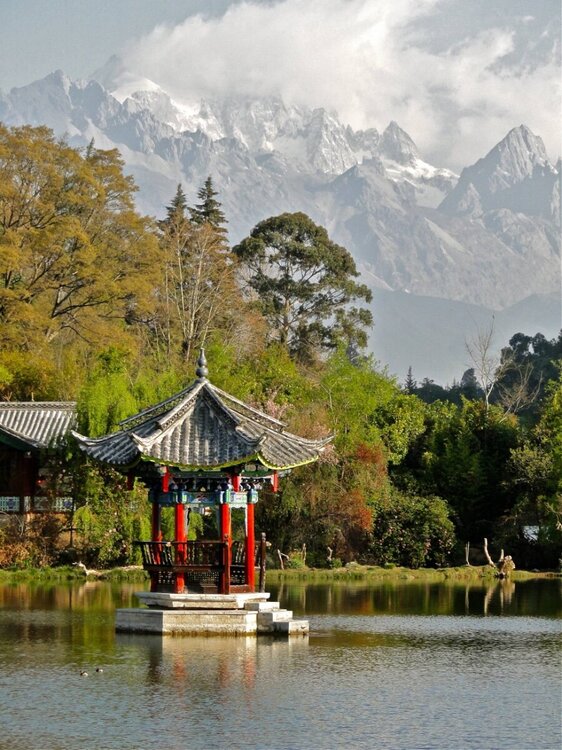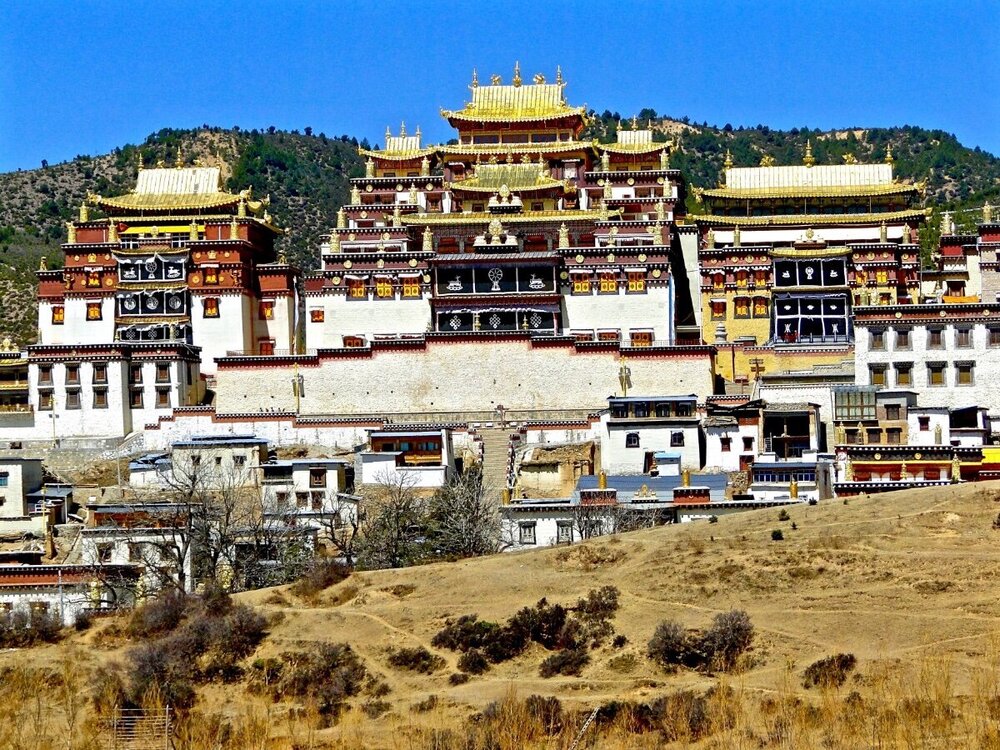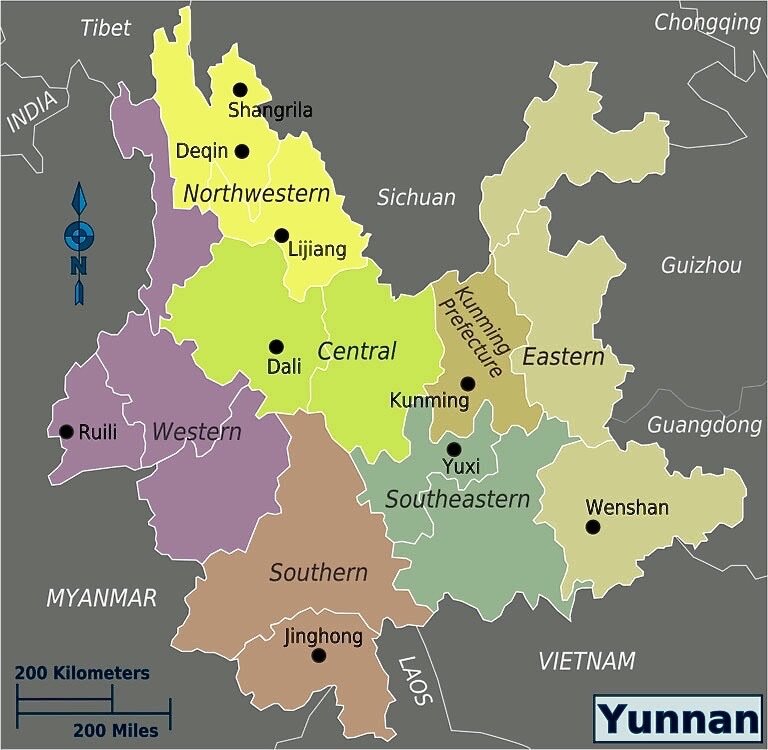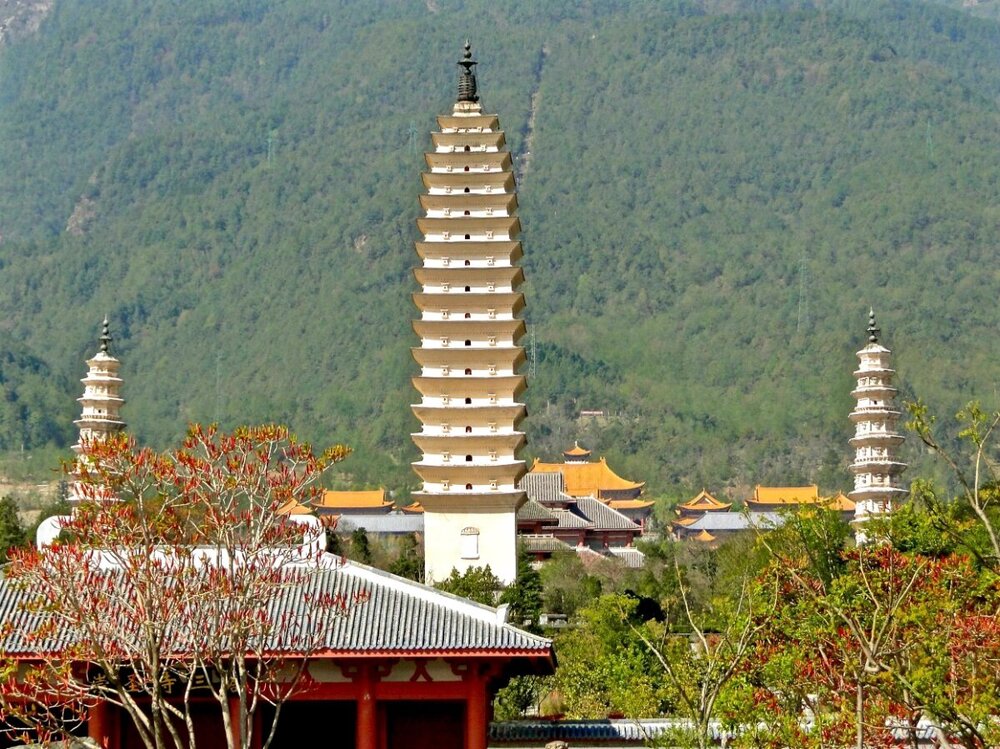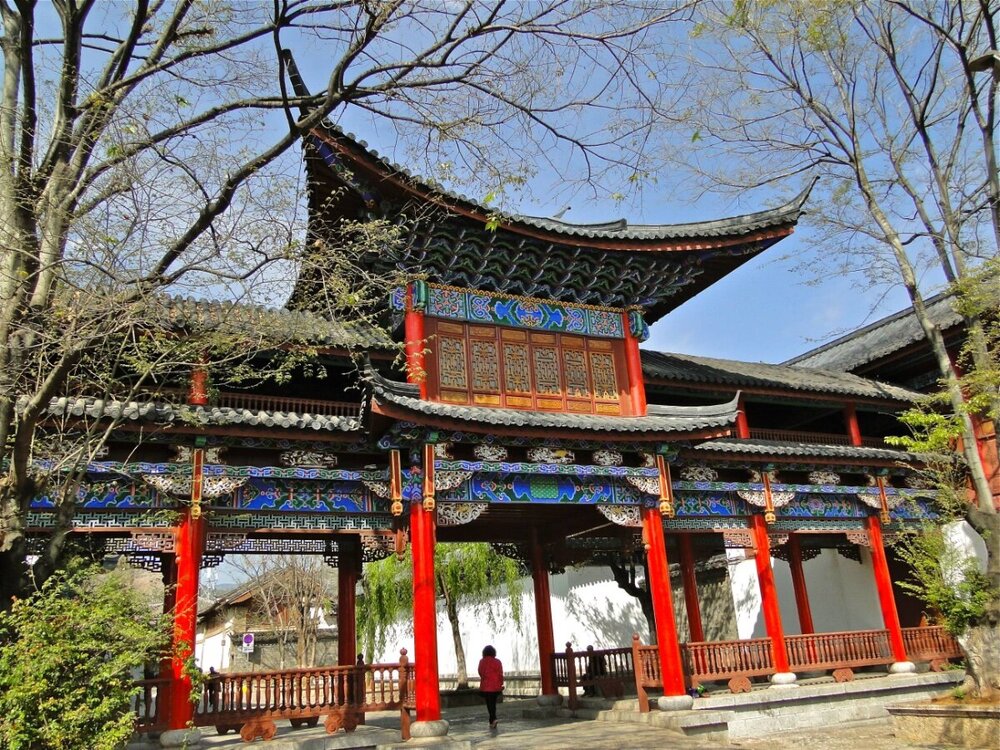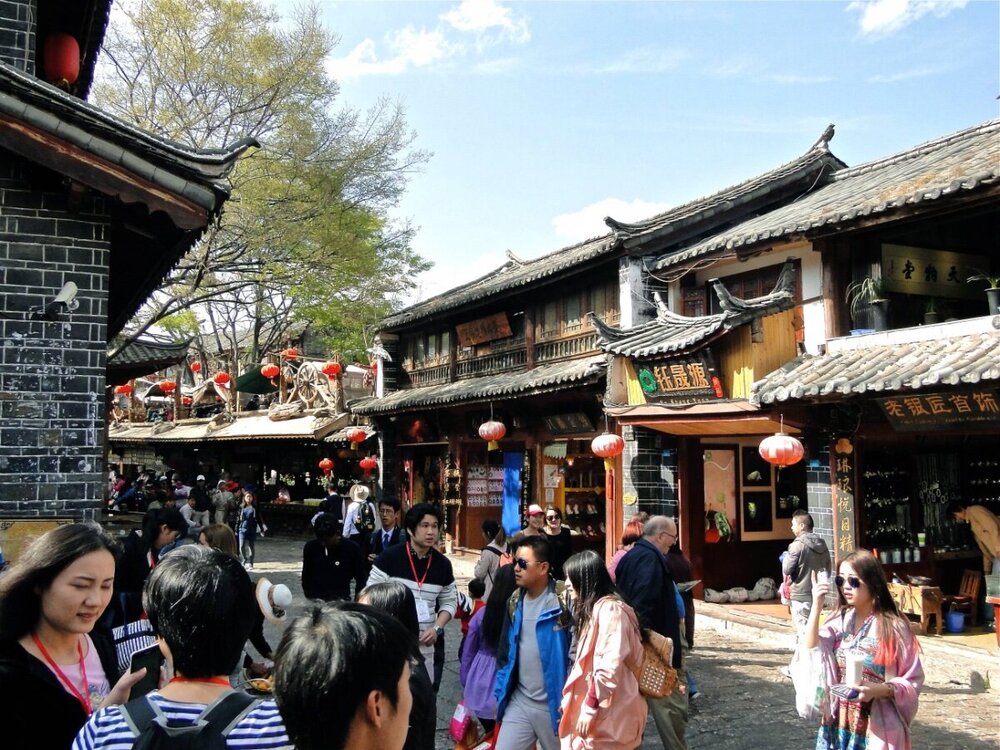
PeterRS
Members-
Posts
4,643 -
Joined
-
Last visited
-
Days Won
308
Content Type
Profiles
Forums
Events
Everything posted by PeterRS
-
Well, possums, it had to happen one day. The curtain has finally come down and will not rise again. The good people of Moonie Ponds outside Melbourne are left to mourn their most famous daughter. Dame Edna has died. Barry Humphries, the much loved Australian creator of Dame Edna Everage and a host of other characters including the perpetually inebriated cultural attache Sir Les Paterson, has died at the age of 89. He suffered from complications as a result of hip surgery in Sydney last month following a fall in February. It is unlikely the world of comedy will ever see his like again. Many compared him to the great film comedian Charlie Chaplin. There are endless youtube videos illustrating his talent. This visual quality on this one made in 2004 with Michael Parkinson, Dame Judi Dench and Sharon Osbourne is not great but Humphries is at his best, especially when talking about her son's homeo . . . well, I'll leave it there. RIP the one and only, the unique Barry Humphries.
-
So true. My guide's parents lived in Shiraz and his father made a very passable red wine. He gave me some in a bottle of what had been vegetable juice. He just asked me to rinse the bottle thoroughly before I disposed of it! My assessment from visiting various cities in 2018 is that the people almost to a man utterly despised their rulers. But they could not then and can not now do anything about them. Corruption in all political and military circles is rife. I was told the Supreme Leader pocketed US$13 million per day in bribes - although how anyone could know such an exact figure beats me. Regarding Iran. I do think a knowledge of the past is vital in realising how it has reached this point in its long and often distinguished history. It's fact that the country had downgraded the corrupt Shah and elected as Prime Minister Mohammad Mosaddegh in the early 1950s. But his party nationalised the country's oil industry because Iran was receiving only a fraction of its worth purely because the USA and the UK which ran the industry were desperate to protect their own financial interests. So the CIA abetted by the British organised the coup which got rid of Mosaddegh and the Shah was returned to power. With the Cold War in progress, the USA propped up the Shah who became a total megalomaniacal dictator as time went on. His notorious Savak Secret Police were hated, as was the ostentatious spending on luxuries by him and his wife. He then turned around and bit the hand feeding him when he led the OPEC oil embargoes which resulted in massive inflation and economic misery in the west during the 1970s. Within the country, he became even less popular. When criticism from the clergy grew intense, the Shah banished Ayatollah Khomeini who thus became a figure around whom the growing number of critics of the Shah could coalesce. We all know what then happened. The opposition finally got the Shah kicked out and Khomeini was welcomed back by all in the country. For a time he was lauded, especially after Iraq invaded in 1981 and started the ghastly war that lasted for 8 years. But Khomeini's firebrand form of Islam soon grew thin as the regime became more and more pervasive and more and more corrupt. But the Ayatollahs by then had a stranglehold on the country and, apart from one short period, were not prepared to give up any of their power. It is all so desperately sad for the people of that country.
-
I rarely drink beer. If I do then it is usually at the Ratsstube restaurant in the Goethe Institut off Sathorn Soi 1 where they serve a range of very fine German beers. If @vinapu ever travels in Iran - an amazing country with amazing people and stunning cities and scenery - I doubt if he will have more than one of the local alcohol-free beers. I found it quite undrinkable!
-
If Thailand really is "far behind" then it is largely because corruption is so rife in this country. Yet the comment by @Marc in Calif fails to note that Transparency International's 2021 Corruption Perceptions Index has all three countries virtually tied well into the lower half of the list. Democracy in The Philippines is largely a joke. True, registered voters have a vote. But the country has for far too long been effectively ruled by a clutch of mega-rich families who ensure that the vast majority of Filipinos are kept poor - many desperately so. When it comes to Presidential elections, The Philippines has a near dire record. After the murdering, thieving dictatorship of Ferdinand Marcos, propped up for decades by the USA as a pawn in the Cold War, and his luxury-loving wife Imelda - who has still not been jailed for her many crimes, one President was a popular actor who found himself ousted and jailed on massive corruption charges. Impeachment claims were made against his successor Gloria Macapagal Arroyo in four consecutive years. Athough the economy improved under her rule, corruption remained rampant. With a rise in vigilante murders, Human Rights organisations condemned her government. A government enquiry found that most of the extra-judicial killings had been carried out by tmembers of the armed forces. But no one was charged. Duterte who was voted President in 2016 was also guity of approving thousands of extra-judicial killings. He even announced publicly that he would issue "thousands of pardons" a day to members of the police and military accused of human rights abuses. Yet early in his Presidency, a Pulse Asia survey showed that he enjoyed a 91% rating, the highest of all six Presidents since Marcos. Now the Marcos name has been whitewashed by the electorate with the son of Ferdinand Marcos elected as President. This is another indication of the corruption rampant in the country and in particular in the Province which the Marcos family has ruled virtually with a rod of iron. Re Indonesia, as the Journal of Democracy stated in January 2023, "democracy is regressing and endangered in Indonesia". After B. J. Habibe became President in 1998, there was universal hope that democracy and a freer press would become more entrenched. He tried to clean up what had been called a pollitical swamp but in 2001 legislators pressed by the pollitical elite and military leadership voted to get rid of him. An article in The Diplomat illustrates that under the present President, Indonesia has slid down democracy indices. In 2017 it was the worst performer in the Economist Group's Democracy Index when it fell 20 places. Now freedom of speech and presenting facts have regressed further. The President has now also followed the example of many dictators by promoting family members into positions of power and inflluence. Behind the scenes there are moves to permit the country's President to serve 3 consecutive 5-year terms in place of the present 2. The much admired founding father of Singapore, Lee Kwan Yew, frequently stated that the west had to realise that Asia enjoyed democracy "with Asian characteristics". It was not the same as democracy in the west. How true! Yet it is important to accept that true democracy can never evolve in Asian countries until a range of democratic institutions, the rule of law and freedom of the press are introduced and allowed to take root. That is unlikely to happen in any of our lifetimes, IMHO.
-
Sad both about the demise of Pantip Court and the verdict on the man who promoted craft beer. Thailand Beverage Company is a huge monopoly that controls up to 90% of the Thai whisky market as well as owning Chang beer. It owns a vast tract of land around the Queen Sirikit Convention Centre and no doubt in other parts of Bangkok and other cities. It does not want other alcoholic beverages sold in the country and uses its muscle accordingly. The Thai government therefore places major taxes and restrictions on imported alcoholic products. Kloster beer was regularly sold in the country till the early 2000s when it disappeared from the shelves. Chang had started sales in the mid-1990s and did not want competition. So Kloster and Carlsberg soon vanished. Carlsberg eventually returned after a decade in the wilderness.
-
The death has been reported of Moonbin, a member of the K-Pop Boy band Astro. He was just 25. Apparently his body was found unresponsive in his apartment yesterday evening in an upmarket part of Seoul. No cause of death has been announced but it foolows that of a number of other K-Pop stars in recent years. In 2018 Minwoo of the band 100% died at home with the cause given as cardiac arrest although suicide was suspected. Three months earlier, Jonghyun the leader of the band SHINee is also suspected of having committed suicide aged 27. Two stars in female groups are also suspected of committing suicide after online bullying. In 2019 Goo Hara had also been abused by her boyfriend. Her death occured just a month after her friend and fellow K-Pop star Sulli was found dead. Much as the world has fallen in love with K-Pop and each band has a huge host of followers, the pressure on these artists who are usually recruited in their early teens and then subjected to a gruelling routine of training and rehearsals while closed off from much of Korean society is wxtreme. The competition is more than intense. Few make it to the top with much knowledge outside their hermetic existence. The members of the worldwide sensation that is BTS are one of that few. Its members have now suspended their K-Pop work to do their mandatory military service. Moonbin: photo The Chosunilbo JNS/ImaZins/Getty Images https://www.theguardian.com/music/2023/apr/20/moonbin-dies-k-pop-star-death-member-of-boy-band-astro-dead-aged-25
-
I had friends from Vietnam here in Bangkok. It may well be different up country but the use of mega-water guns here was common as was throwing buckets of ice-cold water over strangers. Hardly 'touching'!
-
If you spend too much time worrying about principles, I'd forget about travel. Many countries have different prices for tourists one way or another. Just put it down to experience. If you take it to an extreme, in my own country the UK I pay more to visit Heritage sites because many locals are paid up annual members and can access as many as they want over a 12 month period. Why should I have to pay proportionately more than they do? Because I'm a one-time visitor. That's perfectly fine with me. I don't pay taxes in Thailand. If occasionally I have to pay more than a Thai to enter a national park or even a restaurant, that's also perfectly fine.
-
Will US Justice Clarence Thomas Finally Get His Comeuppance?
PeterRS replied to PeterRS's topic in The Beer Bar
Thanks for the clarification. Plus they own See's Candies. When in Taipei I always buy far too many of them, despite the expense! -
Will US Justice Clarence Thomas Finally Get His Comeuppance?
PeterRS replied to PeterRS's topic in The Beer Bar
If that were the rule in the US, Clarence Thomas would have just two more months 🤣 -
Will US Justice Clarence Thomas Finally Get His Comeuppance?
PeterRS replied to PeterRS's topic in The Beer Bar
Given that there is a minimum age at which an individual can become a US Senator, I wonder why there is no maximum age? WIth near gridlock in the US Senate, we have the spectacle of Senator Diane Feinstein at 89 seemingly desperate to hold on to her Senate seat while concerns about her physical and cognitative health are spreading like wildfire. If failing health means she cannot get from her California home to Washington, she puts her own party at major risk. She has already been absent since February and missed 60 of 82 votes. She, though, beats Chuck Grassley on the other side of the aisle by only a few months. Presumably there is no maximum age because the framers of the Constitution in 1788 did not consider that many Senators would live above the average age at death which was then under 40! But when you look at the Supreme Court there is not even a minimum age limit and few required qualifications. The youngest ever appointed as far as I can see was Joseph Storey in 1812 when he was 32. When nominated by George H W Bush, Clarence Thomas was 43 and had only been a judge for little more than a year. Yet Bush called him the "best person" to take the job, a recommendation massively derided. It was known Thomas was an extreme idealogue. Perhaps it was an 'up you' by Bush to those senators who had rejected and condemned Reagan's choice of another idealogue Robert Bork only 4 years earlier. The point surely is: if the average worker has to retire from their jobs at an age of between 60 and 70 depending on where you live, why is there no maximum age for those who rule over us in Congress, parliaments and High Courts? Judges in the UK have to retire at 70 (although there is a remote possibility of extending to 75). Although there seems to be no mandatory maximum age for UK MPs, at present the oldest member of the UK's House of Commons is 78. One of the oldest ever was Winston Churchill who retired at 89. Of course the USA is a different country, but how is it - and why is it - that the Joe Bidens, Donald Trumps and Rupert Murdochs of this world are able to have positions of such power and so greatly influence events at an age when most of the world has not only had no choice but retire, a very large number are dead? -
Just a quick note to say that Yunnan Province of which Kunming is the capital city has many fascinating places to visit. I flew there about 5 years ago and visited Dali, Lijiang and Shangri-La in addition to a day in Kunming. Dali is part of the breadbasket of China. Lijiang has a legendary beautiful old town and Shangri-La boasts a Tibetan monastery said to be the most beautiful outside Lhasa in Tibet. The Province has many Tibetans as it abuts Tibet. Dali Lijiang Ganden Sumtseling Monastery at Shangri-La
-
Beware of passport scam targetting British nationals
PeterRS replied to reader's topic in The Beer Bar
As I think Barry Kenyon pointed out in one of his articles, getting a new UK passport if you apply in Thaiand can take up to 11 weeks. This was prior to the passport officers' strike. Goodness knows how long it will take now as April/May is a peak appllication period at the national passport office in Liverpool for Brits applying for first passports for summer holidays. As I mentioned in another thread, I was in the UK last month. With just three pages left in a 50 page passport and rarely having a 3-month period before having to travel, a friend in London told me about the one-week fast-track service in the London and Glasgow passport offices. Although this is technically available only if you live in the UK which I do not, I did apply for an interview in advance and prepared various reasons which i was sure the officer would ask about. As it turned out, all I had to do was show him two previous passports illustrating how quickly they got filled up. Instead of 30 minutes, the interview took just 8. My new 50-page passport arrived at my relative's home exactly 48 hours later (I did pay a little extra for local courier delivery)! In total I paid about £35 more than the £138.51 quoted in the article. It was definitely worth it and I would gladly have paid even more. -
I have never thought much about 'woke' and have wondered why the word has gained such traction. Reading the above, my first reaction was ridiculous! How can you reset a quintissentially Japanese G&S parody to Renaissance Italy? How do you make Sullivan's pseudo-Japanese music work? Then I realised it was only the music I was really concerned about because it simply would not fit the concept. In theatre (and often, paradoxically perhaps, opera), though, resetting the period and even the country can work extremely effectively. I recall seeing two theatre companies present stunning productions of classics reset to Japan. The Ninagawa Company took its Macbeth set in samurai Japan to the Edinburgh Festival and later London in the mid-1980s. It was adored by audiences and critics alike. The same country's Suzuki Company took its versions of various Greek classics on tour to various countries. I saw its Elektra with strong Noh and Kabuki influences and was overwhelmed by its stunning physicality and overall effect. Would wokeness have resulted in such productions being banned?
-
In 1979 most decent Bangkok hotels had air-conditioning. Even the Rose Hotel in Suriwong and the Royal Hotel near Sanam Luang, both of which would have struggled to gain more than 2 stars, had a/c. Perhaps interesting, Government House in Hong Kong did not have a/c installed until the start of 1979! How the Goverors put up with the heat and especially the summer humidity before then I shudder to think.
-
Emirates has just offered a special price of "from 70,480 baht" for biz class from BKK to Dubai. I haven't checked any dates but it is valid from April 13 to 30 September. The offer expires in 13 days. At US$2,050 that's a great deal cheaper than quoted by the OP.
-
The New LGBTQ Literature List
PeterRS replied to PeterRS's topic in Theater, Movies, Art and Literature
I suspect most of us were eager to read Mary Renault's novels in our youth. She was one of the few writers prepared to highlight homosexual relationships even though the references are now regarded as somewhat mild. Fire From Heaven depicts the love between Alexander and his boyhood friend Hephaestion, while The Persian Boy describes the love that develops between Alexander and the young castrated Persian from an aristocratic family gifted to Alexander by King Darius. -
The humidity in Bangkok does not feel especially high - and there is at least a bit of a breeze most days. Certainly I have felt much higher and almost unbearable levels of humidity in places like Tokyo and Hong Kong.
-
There's an interesting article in today's UK Observer newspaper with today's writers informing readers of lesser-known books about gay life that deserve to be classics. So it's not discussing the James Baldwins or Alan Holingshursts. I won't list them here as it's easy to see them headlined in the article. I will just quote a few lines from near the start. "Arriving in London in the last few months of the 1980s, I discovered that there were more than a few hundred of us and that books still had a potent force. Shared among gay friends, we could celebrate our growing confidence and visibility with new work from Alan Hollinghurst and Jeanette Winterson, develop a camp sensibility by quoting to each other lines from EF Benson and Ronald Firbank, imagine that London could become the queer Arcadia depicted in Armistead Maupin’s Tales of the City." https://www.theguardian.com/books/2023/apr/09/lgbtq-lost-classics-books-chosen-by-authors It made me think about the books which helped me realise that I was not one of a few feeling he was gay. One of the first i read was a classic of its time and I see from amazon that it remains in publication today. Written by the late French diplomat Roger Peyrefitte, Special Friendships was the English translation published in 1958 of his 1944 novel Les Amities particulieres. It is set in a French religious public (private) school for boys, outlines his own homoerotic experiences and deals specifically with the crush/love of two boys for each other. The New York Review of Books wrote in its review, "Schoolboy passions have seldom been described with such delicate sympathy and understanding." Regarded by many as scandalous, Andre Gide congratulated Peyrefitte on its publication. It was assumed to be autobiographical although it seems Peyrefitte did not acknoweldge his own homosexuality until he was posted as Secretary to the French Embassy in Athens in his early 30s. After Les Amities particulieres Peyrefitte continued to be regarded as an iconoclast when he published in 1955 Les Clefs de Saint Pierre - printed in English in 1957 as The Keys of St. Peter - which was regarded as "lewd and libellous" and was prosecuted for obscenity in Italy. Hugely popular in France, it attacked Pope Pius XII in particular and the Catholic Church in general. A secondary theme is the realisation of a young seminarist that he has fallen in love with another man. In articles written some years later, Peyrefitte accused Pope Pius of being a closet homosexual and having chosen for his Papal name his lover's first name. This reached the eyes of Pius who in an address in St. Peter's Square complained about the "horrible and slanderous insinuations" being said about him!
-
The Vermeer Exhibition: 4 Months Sold Out in 3 Days
PeterRS replied to PeterRS's topic in Theater, Movies, Art and Literature
What a fascinating documentary! Thank you so much for posting. I am sending it to my friends who will be visiting the Amsterdam Exhibition next month. When I saw that it was a Penn & Teller film, I assumed it would be something quite flippant. Nothing could have been further from reality. It's a very serious study of how Vermeer might actually have been able to reproduce so exactly the images he painted. If so, then he would not have been the first to use that marriage of art and simple technology. 150 years before Vermeer, the early Renaissance Tuscan painter Piero della Francesca was known also as a mathematician and master of geometry. This is clearly seen in the few of his paintings still available in Museums and Galleries. One year in Italy I drove over to Urbino just to see what is arguably his finest extant work, The Flagellation of Christ, frequently called the finest small painting in the world. The geometry is extraordinary and has been the subject of many videos. This short one is interesting partly because it starts by explaining the background to the possible composition and the characters, but more particularly because it details some of the painting's geometry. If you are interested only in the latter, start at 5'05" - and be amazed! -
On a slight tangent, I got a new passport when in the UK last month (excellent 48 hour service booked in advance - although at a price) and now have the hassle of ensuring almost every organisation I have to deal with in Bangkok has my passport details changed. On Friday at the Bangkok Bank Head Office I could not believe this meant the bank staff had not only to change my passbook but complete around 20 different forms of which I had to countesign most. The whole process took nearly 25 minutes and struck me as a total waste of staff time for what ought to be a relatively simple procedure! Re the cops, I always carry with me a laminated photocopy of the passport details page with the visa on the other side. Never been asked for it, though!
-
Not sure why I have not noticed that Bangkok seems markedly hotter than in previous years. I've had to walk around 3 kms (total with several stops) in the early afternoons daily over the last 4 days in the centre of the city and hardly broke sweat. And I returned from a fortnight in a really cold UK on March 21. But the cooler weather for Thailand is on the way certainly by next month.
-
Like @vinapu I am pretty sure they will be higher for what is one of the peak travel seasons unless the present volume of passengers starts to tail off. I'd certainly wait. Not sure to which city you wish to fly, but some Emirates flights have its new PE class. But I see from the Skytrax site that passenger reviews for Emirates are a good deal worse than before, even for first and biz class. I recall it was only 4 1/2 years ago I got biz class flights to/from the UK on Qatar for 77,000 Baht! Qatar still gets generally very good reviews on Skytrax. For my regular trips to Taipei, I am delighted that the low economy fares on China Airlines from BKK are still what they were 3 years ago. I am snapping up tickets for November 2023 and February 2024 before they rise.
-
Another unlucky Brit denied insurance claim in Thailand
PeterRS replied to reader's topic in The Beer Bar
That entire Barry Kenyon article is a sober warning that should be mandatory reading for all potential tourists. But I wonder how many, including residents, are aware of the back seat seatbelt law? Very few, I suspect. As a regular passenger in Bangkok, about two weeks ago I heard from one driver - who himself was not wearing his own belt (very unusual in my experience) - that "no one bothers with belts in the back seats." It's obviously one of these laws almost impossible to police because of the dark tinted windows. Discovery is only likely in the event of an accident. Although I have admitted to not wearing a helmet when taking a motorcy taxi, I do wear seat belts as a taxi passenger. This is no doubt the result of an experience on a business trip to California and what was luckily only a mild crash on Highway 1 when I was a back seat passenger not wearing the belt. In Hong Kong the wearing of belts became mandatory around the mid-1990s and the public was given just two short weeks grace to get used to the law. Thereafter passengers AND drivers would be fined. To be fair, dark windows were not common in HK 3 decades ago and it was much easier to police the law. The reality of having to go to a police station to pay fines soon had everyone using the belts.






